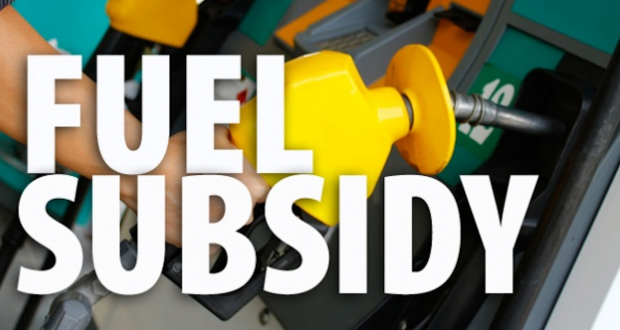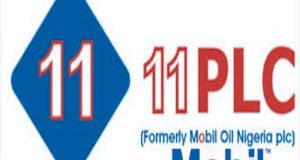….by Ben Ndubuwa…..
The Presidential Economic Advisory Council (PEAC) last week called on President Muhammadu Buhari to remove subsidy on Premium Motor Spirit ( PMS) otherwise known as Petroll and adopt a pricing regime that reflects the cost of the commodity.
The demand by PEAC to remove subsidy came in a recent meeting with the President in which they warned that the current subsidy regime on Petrol would worsen the solvency of state governments.
The Council which is charged with the responsibility of advising the President on economic policy matters including fiscal analysis, economic growth and a range of internal and global economic issues also work with relevant government cabinet members and heads of monetary and fiscal agencies and do report directly to the President.
According to the document it presented last week in a parley with the president, the Council which is headed by Prof. Doyin Salami, pointed out that there is the need for policy clarity with regard to fuel subsidies which it said would help resolve the dilemma which arises from the fluctuating crude oil prices.
The Council also said that the worsening security environment had adversely affected food production leading to higher prices; and the need for the Petroleum Industry Bill to encourage investment in Nigeria’s oil and gas sector.
According to PAEC improving crude oil prices had led to what it called the Nigerian ‘dilemma.’
This dilemma, it said, resulted from the conflicting implications of higher crude oil prices on the nation’s economy. In which the government revenue will swell but at the expense of imported petroleum products which drains the earned scarce foreign exchange and this is never recovered from the so called pump price at the various retail outlets.
Reiterating this economic dilemma the Governor of Ekiti State, Kayode Fayemi in a recent Television programme frowned at the Federal government indecisive posture in dealing with this economic ailment called subsidy payment on Petrol which is swelling like cancer and gulping N120 billion every month.
“There are issues that must enable us to have a clear-sighted and consistent economic position. If we insist that we’re going to deregulate, there are implications to that in terms of those that may want to spur us” Fayemi said.
The governor, who doubles as the Chairman of the Nigerian Governors Forum, explained that the unsustainable subsidy had deeper implications for government’s anti-poverty strategy, noting that the expected resources would be adversely affected with upsurge in subsidy payment.
“Today, the Nigerian National Petroleum Corporation (NNPC) tells us it is subsidising N120bn monthly on the petrol. That is the money that should have gone to the federation account for disbursement
”In order to tackle that poverty that we consider a major priority for our government to deal with, it is a question of whether we’re going to keep up with the subsidy, for the people who ultimately are going to be the losers” he said.
The Nigerian Labour Congress (NLC) on the other hand had insisted that petrol subsidy must not be removed and that it would not shift grounds on this position until Nigeria’s refineries were fixed.
NLC’s position came as a support to the earlier declaration of the Nigeria Union of Petroleum and Natural Gas workers where (NUPENG) kicked against the advice of the Presidential Economic Advisory Committee on subsidy removal.
The General Secretary, NUPENG, Olawale Afolabi, had said that it was going to be highly suicidal to remove petrol subsidy now and that the advice by the PEAC that government should remove subsidy was wrong.
“Within the current context of hardship in the country, it is suicidal to remove subsidy now. It is highly suicidal within the current situation,” Afolabi had stated.
When contacted to know if the NLC would support the advice of the PEAC following complaints by the government on the huge financial burden of petrol subsidy, the Deputy President, NLC, Joe Ajaero, replied in the negative.
He said, “The way they put some of these things makes it to look as if it is now rocket science. Is it subsidy on the crude produced here or subsidy on what? Those are some of the concepts you want to understand.
“Subsidy on garri, yam or all those things we produce here? I say this because the crude oil we are talking about is produced here and we now say let there be refineries to process it here.”
He added, “And when that is done nobody will tell you about subsidy. It is to make things easier for the same person who says he is paying subsidy. If you produce refined petroleum products, at least the one we need for domestic consumption, you won’t tell us about subsidy again.
“But by the time you carry our crude oil and refine it abroad and you bring it back, you will start to tell us that you have spent money on shipping, landing cost and all other costs and then you need to add money to make it real and you call it subsidy.”
The labour leader said members of the union did not believe that the government was incurring any cost on petrol subsidy because it was possible to trade crude oil with refined products without having to incur additional costs.
Ajaero said, “To continue to remove what they call subsidy, which some of us don’t believe, has been an issue. Even at that, you can sell your crude and use part of it as barter. Meaning I give you crude, you give me refined products of this nature.
“But what we see in Nigeria is that they go there, give them (refiners) crude and it is refined and we buy it at higher price. I really don’t understand. For us in labour, we are not seeing it that way.”
He said the NLC insists that the government must refine crude oil in Nigeria, as this would create jobs while other bye-products from the crude oil would be used for the benefit of Nigerians.
“That is our position. It doesn’t call for shifting of grounds because that is the right thing to be done,” Ajaero said.
He argued that nations across the world made use of products for which they had both competition and comparative advantage.
“That is what we are asking our country to do,” h said.
The NLC deputy president said, “This issue of producing a product and buying it from another country is unacceptable. It is not flying.”
When told that the Nigerian National Petroleum Corporation recently said it would not be able to make remittances to the Federation Account if petrol subsidy persisted, Ajaero insisted that petrol price must not be adjusted upwards until refineries were fixed.
However, the Major oil marketers have disagreed with labour Union which is known to take populist postures without considering the sustainability of such position and the consequent impact on the citizenry.
Irked by this unsustainable posture, the marketers recalled the labour Unions have been in this posture for over fifteen or more years since the time of the former President of the Nigerian Labour Congress (NLC) and former Governor of Edo State Adams Oshiomhole.
According to the Marketers, the Refineries have not been fixed since then till now and Nigeria is still subsidizing petrol. They pointed out that if the money spent on subsidy in the last fifteen years is sunk in infrastructure the gains would have been far better.
And because this was not done, Nigeria is borrowing now to finance infrastructure. According to the the Chairman of Major Oil Marketers Association of Nigeria (MOMAN), Tunji Oyebanji today Nigeria is bleeding and the government is borrowing money at an alarming rate to finance infrastructural facilities.
“Money we should have been using to service our daily needs and investments is being spent on subsidy.
“And guess what we would have to pay that money back so our children, the children of labour and grandchildren in future are the ones to be paying that money” Oyebanji said.
The MOMAN Chairman wondered how this borrowed money will be paid. “At a time when the world is moving away from crude oil which is the only product we have that earns foreign exchange so in the future when no one is buying our oil because everyone has gotten electric cars or gas car or solar everyday who is going to be buying our crude oil and where are we going to be getting the money to pay up those loans since we didn’t not invest in developing industries” he said
He insisted that Labour unions are not taking the right position on subsidy.
“It’s like saying don’t give my child medicine or don’t do the surgery on him because it will be painful to him. Whereas there something in your body that is cancer we need to cut off.
He posited that for the nation’s economy to be fine and running there is the need for an economic surgery to remove subsidy just as medical doctor will perform surgery on human body to remove any cancerous growth.
“If we don’t cut it the cancer will grow and that is going to kill the economy before long. This is the case with Nigeria and subsidy” he said.
The MOMAN boss also wondered why labour keep on preaching that subsidy removal will make the poor suffer the more. saying
“The neighboring countries like Ghana, Benin Republic, Chad, Niger, Cameroon where petrol is being sold for 250-500 naira per liter, are they saying there are no poor people in those countries, how many times have you picked up the news paper and read in the newspaper that 20 died in Cameroon because of high price in petrol, 50 died in Chad republic because petrol is selling at 500 per liter I don’t think anyone has read anything like that before because why? The thing is people in those country have adjusted their consumption habits” he said
Meanwhile, Prof. Wumi Iledare, a Professor of Petroleum Economics, also wondered why NUPENG should be describing subsidy removal to be suicidal. “What is not clear is who is commiting the suicide; the economy, business, goverment or unions?
“I wish NUPENG will look around and make good judgement as to what they see around. Subsidy is a Tiger that Nigeria is on its back! The longer the ride the more dangerous is the consequences” Iledare concluded.
 Financial Energy Review
Financial Energy Review





